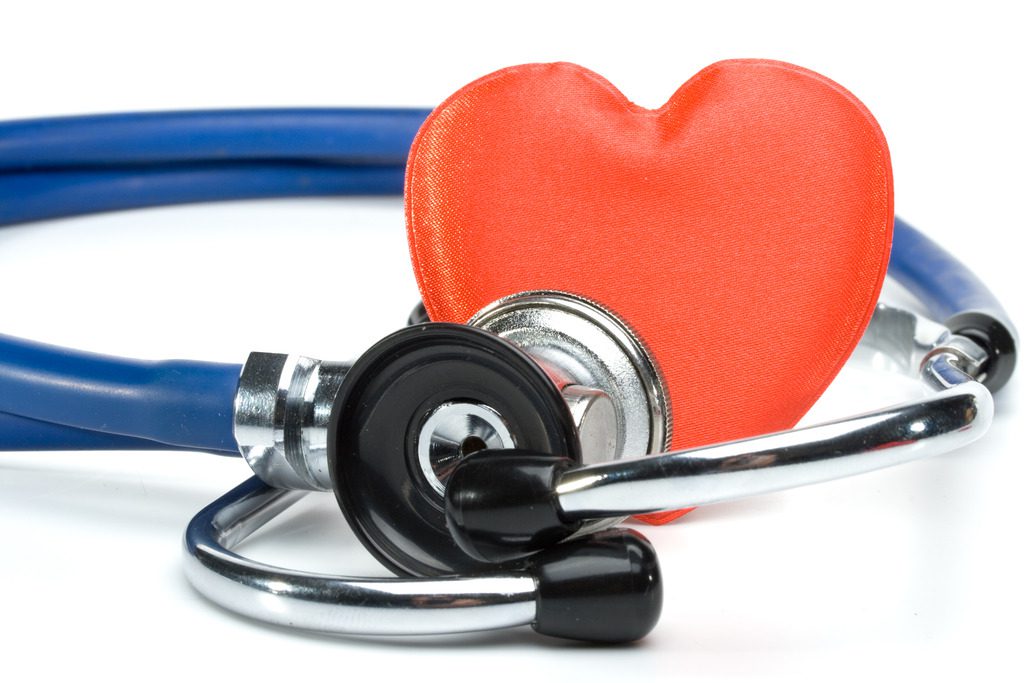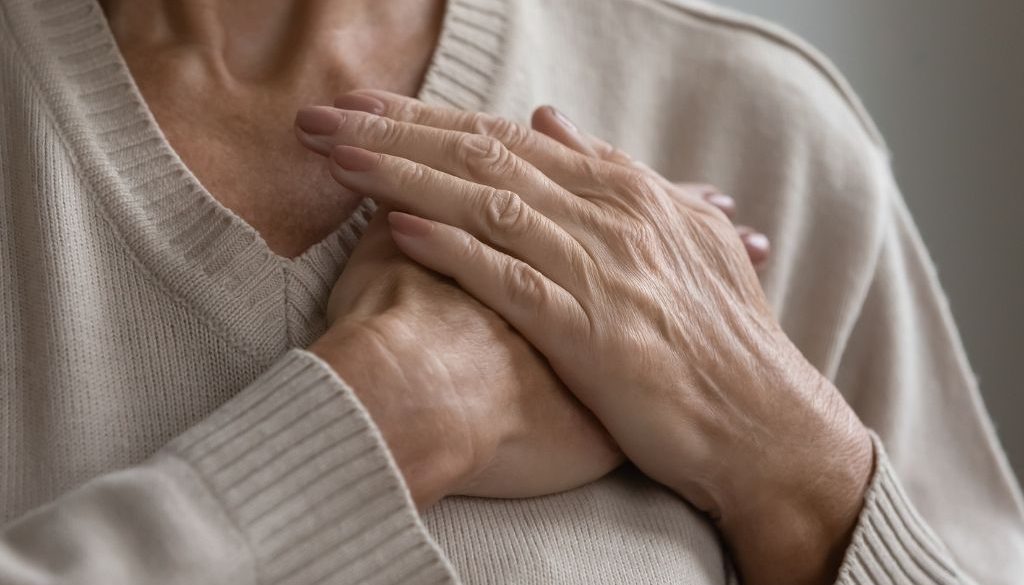Early Heart Attack Symptoms: Do You Have This Vital Information?
In this article:
Yes, chest pain is one of the classic signs of a heart attack, but it’s not the only one. There are a lot of lesser-known and early heart attack symptoms that are often ignored or overlooked.
To complicate matters further, women often experience different heart attack symptoms than men. Add to this the fact that some heart attacks can occur suddenly while others do not, and it can be confusing to get the whole picture when it comes to heart health.
There are also a lot of questions surrounding heart attacks. For example, you may wonder ‘Can a heart attack last for days?’ or even ‘How long do heart attack symptoms last?’
We’ll tackle each of these questions in addition to telling you what to do if you’re having a heart attack, how to recognize early heart attack symptoms, and how our cardiologists in Myrtle Beach and Horry County can help you remain healthy.
Lesser-Known Heart Attack Symptoms
The medical term for a heart attack is myocardial infarction.
Sometimes the signs and symptoms are different from what you may typically think of: Not everyone experiences the tight pain in the chest or pain in the left arm that is often indicative of a heart attack.
There are lesser-known heart attack symptoms, so be alert for the following:
Other conditions cause similar symptoms, which is why it’s vital to get accurate and timely treatment from your healthcare provider.
Early Heart Attack Symptoms: Can A Heart Attack Last for Days?
While most are familiar with sudden heart attack indications, did you realize that there can be warning signs weeks in advance?
How Long Do Heart Attack Symptoms Last?
This varies from patient to patient. In some, the pain can be continuous while for others, it might start and stop again. These symptoms can last for a couple of minutes or several hours.
Can Heart Attack Symptoms Last for Days?
As we mentioned earlier, while many heart attacks occur suddenly, warning signs such as recurrent chest pain may occur days or even weeks in advance.
One of these potential warning signs is angina. Angina is a pressure or pain in the chest, but it can be hard to distinguish it from other conditions that cause discomfort such as indigestion.
In some cases, angina is a sign of heart disease. In others, it can be indicative of an impending heart attack.
So if you’re wondering can heart attack symptoms last for days? Remember that this is a possibility. However, you shouldn’t wait for days before seeking medical help.
Any time you have unexplained pains in your chest, you should take it seriously.
Don’t try to guess what is causing the problem. Get immediate medical help!
How Long Does Your Arm Hurt Before a Heart Attack?
This can vary from person to person. With some, there are arm pain hours before, while with others, the pain may linger for a week before a heart attack.
The bottom line? Don’t take chances. If you have arm pain that is causing concern, seek immediate medical attention.
What Are the Symptoms of a Heart Attack?
We’ve already reviewed some of the lesser-known and early heart attack symptoms, but it’s also good to have a refresher and examine the more “typical” signs of a heart attack.
Remember that while some heart attacks are sudden and intense, most start slowly, only with mild discomfort or pain.
Pay attention to your body and call 911 if you experience:
Survive. Don’t Drive. Call 9-1-1 immediately!
Remember: a heart attack is a serious medical emergency. It’s vital to understand risk factors and symptoms so that you can seek immediate help for yourself and also assist someone else.
The sooner you get to an emergency department the sooner you can get treatment to reduce the damage to the heart muscle.
Can You Have a Heart Attack and Not Know It?
It may surprise you to know that you can have a “silent” heart attack. 1 in 5 heart attacks are silent, according to the CDC. Even though you may not be aware that you’re having a heart attack, the heart is still damaged.
Men Versus Women: What is the difference?
With men, the most common heart attack symptom is chest pain (angina) or discomfort. However, women are somewhat more likely than men to experience some of the other common symptoms, particularly shortness of breath, nausea/vomiting, and back or jaw pain.
Men normally feel pain and numbness in the left arm or side of the chest, but in women, these symptoms may appear on the right side. In addition:
What Are the Risk Factors for Heart Disease and Heart Attack?
Several health conditions, your lifestyle, your age, and family history can increase your risk for heart disease and heart attack. These include:
- High blood pressure (hypertension)
- Abnormal cholesterol and high triglycerides
- Obesity
- Lack of physical activity
- Smoking
- Your age (the older you are, the more likely)
- You have someone in your family with a heart attack
- You are African-American
You can also use this calculator to assess your heart attack risk.
What Does a Heart Attack Feel Like?
Some heart attacks are sudden, painful, and intense. They give the “classic” signs of chest pain—often described as feeling like an elephant is sitting on the chest.
But what does a heart attack feel like? You’ll find the answer often varies.
While most heart attacks do cause chest discomfort, did you realize that this pain may come and go?
During a heart attack, you may also feel pain or discomfort in your:
- Back
- One or both arms (particularly the left arm)
- Neck
- Jaw
- Stomach
What Happens in Your Body During a Heart Attack?
You hear about heart attacks all the time, but what happens during one?
Essentially, blood flows into the heart to provide oxygen so that the heart muscle can effectively do its job. During a heart attack, this blood flow is either cut off completely or severely reduced. This can be caused by arteries that are narrowed due to excess cholesterol.
In some cases, a cardiac catheterization is needed to determine the cause of a heart attack and the extent to which the arteries are blocked.
You can see what happens during a heart attack through this video courtesy of the American Heart Association.
What Are the Different Types of Heart Attacks?
There are different types of heart attacks: STEMI (ST-Segment Elevation Myocardial Infarction) and NSTEMI. (Non-ST-Segment Elevation Myocardial Infarction). We’ll explain what they are and tell you the differences between them.
The differentiators between these two types of heart attacks can be found when examining the results of an EKG, or electrocardiogram. This type of test measures your heart rhythm.
When you look at an EKG, you’ll see a series of wavy lines. However, to a trained professional, like our cardiologists in Myrtle Beach and Horry County, each rise and fall of those lines indicates something about your heart.
A certain portion of those lines is called the ST segment. The designations between STEMI and NSTEMI determine whether this ST segment is abnormally higher or lower on the EKG results.

What Is a STEMI Heart Attack?
A STEMI heart attack occurs when there is a complete blockage of a coronary artery. These arteries supply blood to your heart muscle. This is the result of a blood clot forming at the site of a ruptured plaque in the artery.
This type of heart attack can be treated through clot-busting medications or by performing an angioplasty to open the blocked artery.
What is an NSTEMI Heart Attack?
In this type of heart attack, the ST segment is not elevated. It indicates a partial blockage or even a significant narrowing of the coronary artery.
It can be treated through medications, or in certain cases, a stent may need to be placed to keep the arteries open.
Heart Disease and Heart Attack Statistics
Heart Disease is a Leading Cause of Death
Heart disease is the number one killer of Americans, and every 40 seconds someone has a heart attack. According to the Centers for Disease Control, one person dies every 37 seconds from cardiovascular disease—which equals more than a half-million Americans a year.
But the alarming statistics don’t end there.
In addition:
- Every year, an estimated 805,000 people in the U.S. have a heart attack
- Of those, 200,00 have had a heart attack before
- For 605,000 of those, this is the first heart attack.
- Heart disease also costs around $239 billion each year, including the cost of medicines, health care, and lost productivity.
With statistics like that, you can’t afford to ignore any signs of a heart attack. The sooner you get help impacts how severe the heart tissue damage is.
You Can Save a Life
If you suspect that someone is experiencing a heart attack/cardiac arrest, they are unresponsive, and they are not breathing or only gasping for air, you may need to perform CPR until an ambulance arrives.
If you don’t know how to perform CPR, you can take a class through the American Red Cross.
We Offer the Most Advanced Cardiac Care in the Region
At the foundation of our heart center is an experienced, compassionate team working with state-of-the-art technology. We work with expert cardiologists from CMC Cardiology to ensure that you’re receiving only the best care.
We also work with Duke Health professionals to utilize the latest evidence-based treatments. This enhances the quality of heart care available throughout our community.
This means that we have access to the leading experts in the country, working together to provide the best care practices.
Whether you’re seeking sophisticated services in our cardiac catheterization lab or you need early heart attack care, we have the guidance and treatment you need.
Not sure about the state of your heart health? Do you have a high risk of a heart attack? Contact us today to schedule an appointment.




